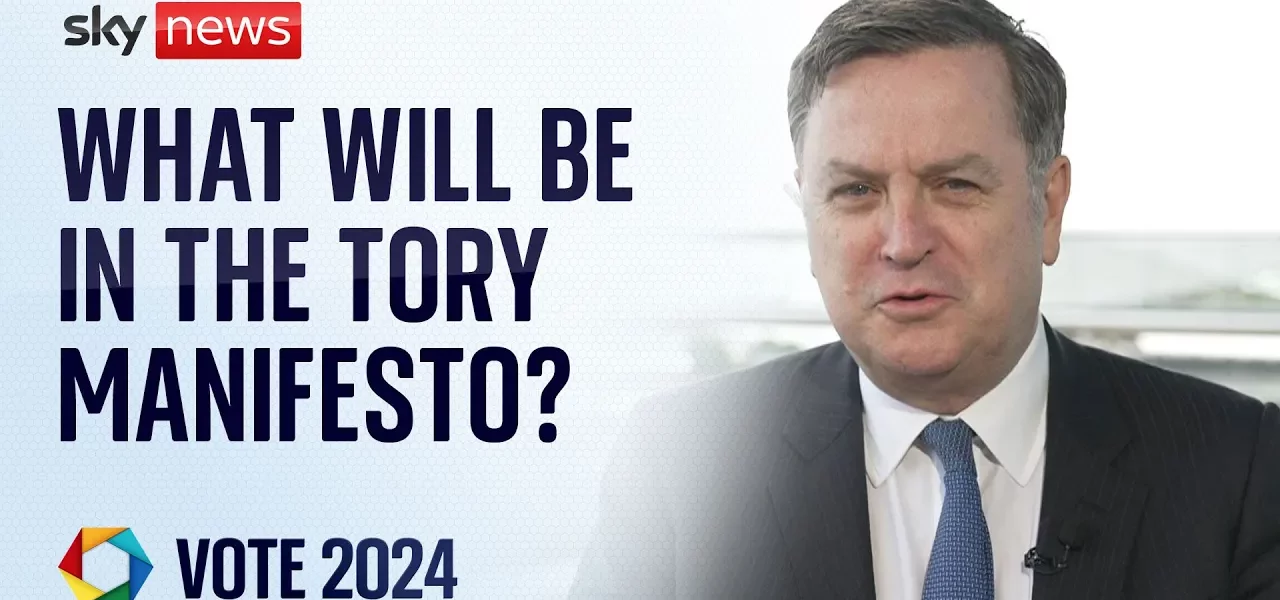Government Manifesto Launch: Key Points and Economic Implications

This article delves into the government’s recent manifesto launch, outlining proposed tax cuts, economic strategies, and the implications for various societal sectors, including pensions and crime. A critical examination of the distinctions between the current government and the opposing party is also presented.
Introduction
The recent launch of the government’s manifesto has set the stage for a significant political discourse ahead of the upcoming elections. With the backdrop of economic uncertainty and rising public concerns, the manifesto aims to delineate a clear choice for voters. The focus is primarily on tax reduction strategies intended to secure a financially stable future for citizens while contrasting sharply with the opposition’s policies. This article explores the major themes presented in the manifesto, the political implications involved, and the expected economic outcomes.
Key Features of the Manifesto
Tax Cuts and Financial Security
At the heart of the manifesto is a commitment to reducing taxes for individuals and businesses. This initiative is designed to alleviate financial pressure on households and stimulate economic growth. The proposed measures include:
- Cutting National Insurance contributions
- Eliminating income tax for pensioners
- Supporting first-time home buyers through financial incentives
These tax policies are expected to enhance disposable income and encourage spending, which is crucial for economic recovery.
Addressing the Spending Black Hole
The manifesto also highlights concerns regarding the opposition’s fiscal policies, particularly a reported £38.5 billion spending gap. The government argues that this gap will necessitate tax increases, which could adversely affect the economy. Key points include:
- Labor’s commitments to increased public spending, which may lead to higher taxes.
- Potential capital gains tax increases that could deter investment.
- Concerns over how these policies could impact pensioners, with warnings of more individuals falling into income tax brackets.
Economic Implications of the Proposed Policies
Impact on Investment and Growth
The government’s tax reduction strategy is positioned as a catalyst for economic growth. However, contrasting views suggest that the opposition’s approach may foster a more stable economic environment. Key economic implications include:
- Enhanced investor confidence through lower taxes, potentially leading to increased foreign and domestic investment.
- The risk of diminished growth due to higher taxes under a potential Labor government.
- Long-term economic health tied to sustainable fiscal policies and incentives for businesses.
Welfare Reforms and Employment Strategies
The manifesto outlines various welfare reforms aimed at reducing economic inactivity. The government claims to have achieved lower levels of economic inactivity compared to the previous Labor administration. Specific strategies include:
- Reforming the work capability assessment to assist long-term sick individuals back into the workforce.
- Creating new job opportunities, with a pledge of 800 new jobs daily.
- Implementing measures to attract and retain young talent within the job market.
These initiatives are crucial for enhancing the employment rate and reducing dependency on welfare support.
Social Policies: Tackling Crime and Community Safety
Reducing Knife Crime
In response to rising concerns about crime, particularly knife crime among youth, the manifesto proposes stricter policing measures and tougher penalties for offenders. The government asserts that:
- Increased police presence and community engagement are essential for crime reduction.
- There will be a focus on preventative measures to address the root causes of youth violence.
- The government is committed to recruiting additional police officers to enhance community safety.
Conclusion
The government’s manifesto launch presents a bold vision for the future, emphasizing tax reductions and a commitment to economic growth. While the manifesto outlines significant initiatives designed to secure a financially stable future for citizens, it also raises critical questions about the opposition’s fiscal strategies and their implications for the economy. As the political landscape evolves, voters will need to consider which party offers the best path forward for the UK. It is imperative for citizens to engage in this political discourse and stay informed about how these policies may impact their lives. For more insights on UK politics and economic strategies, visit our related articles.
“`




